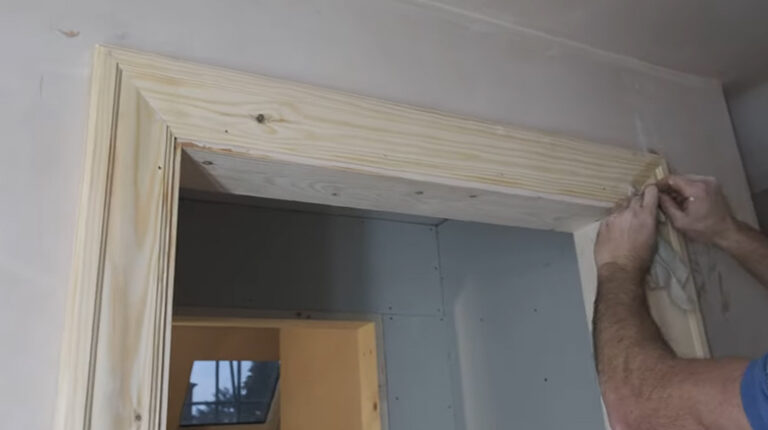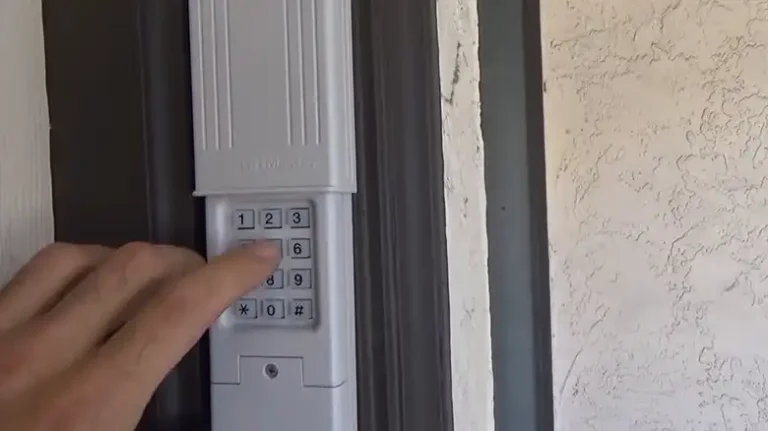Garage Door Opener Clicking Rapidly? Here’s What to Do
Is there anything more frustrating than a garage door opener that just won’t stop clicking? It’s like having a woodpecker as your neighbor, except it’s your own garage making the racket. If you’ve ever experienced this, you know the annoyance it brings.
When there are issues with the sensor or the security lock is enabled, you will start getting this annoying clicking sound with a flashing led light on the door opener.
But fear not, dear reader, for in this article, we’re going to unravel the mystery of why your garage door opener is clicking rapidly and, more importantly, how to put a stop to it.

Why the Garage Door Opener Clicking Rapidly
Let’s start by understanding the root cause of this incessant clicking. Your garage door opener is not trying to annoy you intentionally (although it might feel that way sometimes). Instead, it’s usually a sign that something is amiss. Here are the most common culprits
1. Misaligned Sensors
Your garage door opener is equipped with safety sensors that detect obstructions in the door’s path. When these sensors are misaligned, the opener might interpret it as an obstacle, leading to rapid clicking.
2. Security Lock is Enabled
If the security lock or the vacation lock is enabled then the remote won’t work. Whenever you try to open the garage door with the remote, it will start clicking sound.
3. Faulty Wiring
Wiring issues, such as frayed or damaged wires, can disrupt the communication between your opener and the control panel, resulting in the dreaded clicking sound.
4. Stripped Gears
Inside your garage door opener, there are gears responsible for smoothly opening and closing the door. When these gears are stripped or worn out, the opener might click as it struggles to operate.
5. Blocked Door Tracks
If there’s an obstruction in the door’s tracks, your opener may click as it attempts to move the door, sensing resistance.
How to Stop the Clicking Sound in the Garage Door Opener
Now that we’ve identified the potential causes let’s explore how to silence that bothersome clicking
1. Check the Safety Sensors
Safety sensors are a critical component of your garage door opener. They are responsible for detecting objects or obstructions in the path of the closing garage door. If the sensors are misaligned or blocked, they can prevent the door from closing properly and may cause rapid clicking.
How to Do It
Alignment: Start by visually inspecting the safety sensors. These sensors are usually mounted near the bottom of the garage door tracks on each side, facing each other. They should be perfectly aligned, with their infrared beams making direct contact.
Ensure that there are no objects, dirt, or debris obstructing the sensors. If the sensors are misaligned, gently adjust one or both of them until they are aligned correctly. Most sensors have indicator lights that will help you confirm proper alignment.
Obstruction: If there are obstructions such as dirt or spider webs covering the sensor lenses, clean them carefully to ensure that the sensors can function correctly.
2. Check the Garage Door Opener Motor
The garage door opener motor is the powerhouse that actually moves the door. If this motor is damaged or worn out, it can lead to problems, including rapid clicking.
How to Do It
Visual Inspection: Examine the motor for any visible signs of damage, such as broken parts, frayed wires, or burnt-out components. If you notice any of these issues, it’s a strong indicator that the motor needs replacement.
Listening to the Motor: Operate the garage door opener and listen carefully to the motor’s sound. If you hear unusual noises like grinding, screeching, or excessive rattling, it could be a sign of motor wear and tear. In such cases, consider replacing the motor.
3. Check the Garage Door Opener Circuit Board
The circuit board or the logic board is the control center of your garage door opener. It processes signals from remote controls, sensors, and other components. If the circuit board is damaged or malfunctioning, it can result in issues, including rapid clicking.
How to Do It:
Open the housing of your garage door opener to access the circuit board. Inspect the circuit board for visible signs of damage, such as burnt spots, loose connections, or damaged components. If any of these issues are present, it’s likely that the circuit board needs replacement.
If you own any one door opener from Liftmaster 985, 1240R, 1245R, 1246R, 1255R, 12556R, or Chamberlain 4200, 2200, 1200, then you can use these logic board models – 41A5021 -1, 41A5021 – 1B, 41A5021 – 1C, 41A5021 – 1D, and 41A5021 – 1E.
Testing for Malfunction: If there are no visible signs of damage, but the rapid clicking issue persists, it’s possible that the circuit board is malfunctioning internally. This may require professional diagnosis using specialized equipment.
Replacement Considerations
When replacing the motor or circuit board, it’s essential to use compatible parts that are specifically designed for your garage door opener model. Consult your garage door opener’s user manual or manufacturer’s recommendations for guidance on replacement parts.
While some homeowners may be comfortable with DIY garage door opener repairs, it’s important to note that working with electrical components carries inherent risks. If you’re uncertain about the diagnosis or replacement process, it’s advisable to seek the assistance of a professional garage door technician. They have the expertise and tools to ensure a safe and accurate repair or replacement.
4. Disable the Security Lock Key
Check whether the security lock is turned on or not. If you find it turn on, on the garage door opener, then turn it off, after that try to open and check whether it is making the clicking sound again or not.
By following these steps and conducting thorough inspections, you’ll be better equipped to identify and address the root causes of rapid clicking in your garage door opener.
Bonus Tips – Reasons for Different Types of Clicking Sound
Now, let’s dive deeper into understanding the bonus tips for different types of clicking sounds
Clicking During Door Travel – Clicking noises while the door is in motion could be a sign of worn-out rollers or hinges. Lubricate these components or replace them if necessary to eliminate the clicking.
Clicking After Door Closes – If the clicking occurs after the door is fully closed, it might be due to an adjustment issue with the closing force. Consult your opener’s manual to adjust the force settings appropriately.
Random Clicking – If the clicking is sporadic and unpredictable, it could be a sign of a malfunctioning circuit board in the opener. In this case, professional assistance may be required to diagnose and repair the issue.
People Also Ask – PAA
Why the door opener is making a squeaking sound?
When you hear a squeaking sound from the door opener, then you will need to use a lubricant to make things smoother. You will need to apply lubricant on the hinges or the roller.
What to do if the door opener makes a rattling sound?
When the cover of the motor becomes loose, the opener starts generating a rattling sound. You will need to just tight the cover and the sound will stop generating.
How to stop the door opener from making a grunting sound?
When the spring of your door break, the door opener start sending you a signal by making a grunting noise. Replacing the spring can get rid you of from the sound.
In the End
Your garage door opener clicking rapidly can be a headache, but it’s a problem with solutions. By understanding the underlying causes and following the steps outlined in this article, you can put an end to that annoying noise once and for all. Remember, safety first, and if you’re ever uncertain about a garage door opener issue, don’t hesitate to seek professional assistance. Your peaceful, quiet garage awaits, and with it, the end of that relentless clicking.
If you have any more questions or need further guidance, feel free to leave a comment below. Thanks for reading, and may your garage stay click-free!
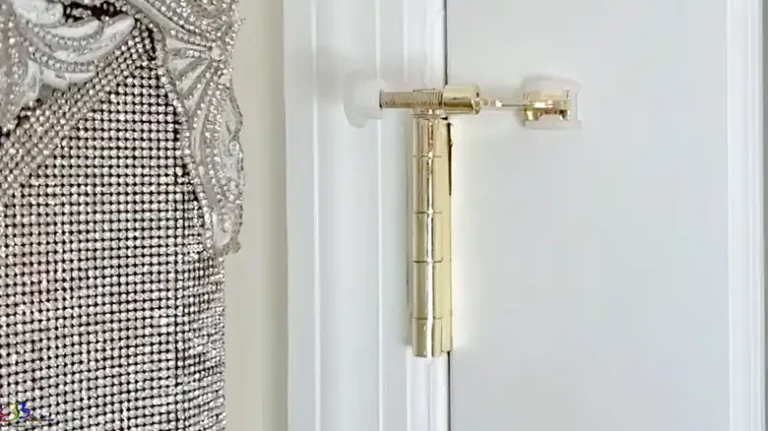
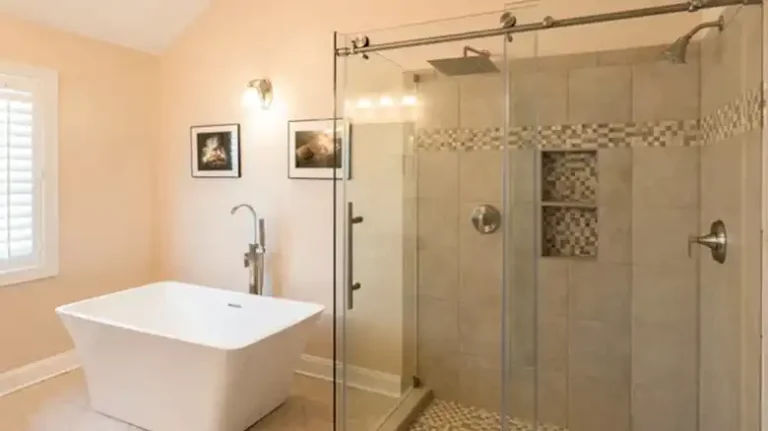
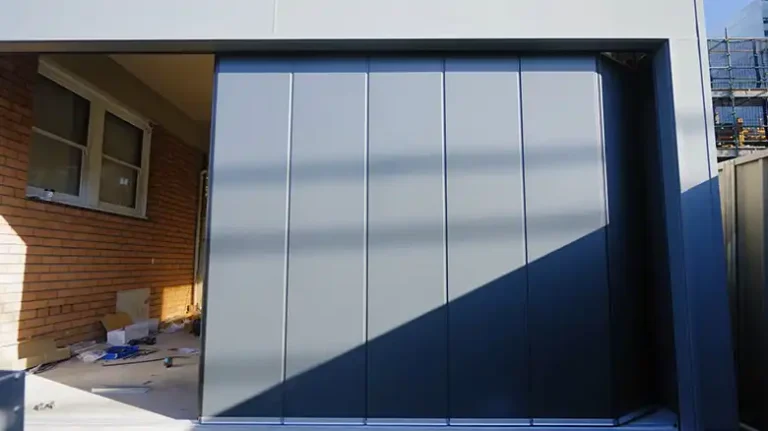
![[Explored] How to Seal Door Threshold to Concrete?](https://doorsuggest.com/wp-content/uploads/2023/09/How-to-Seal-Door-Threshold-to-Concrete-768x431.webp)
